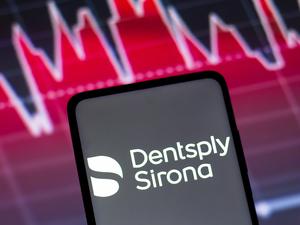
Metrolina Capital has sued Charlotte software company Aceyus Inc. for breach of duty, negligent misrepresentation and possible fraud involving a $1.5 million investment in 2020.
The investment firm, based in Mooresville, accuses the software company of attempting to cheat on the price of redeeming preferred stock that Metrolina purchased in the investment. It also alleges the company's executives withheld information from Metrolina and its representative on the Aceyus board about a pending $2 million equity investment by a third party that would significantly increase the value of its stock.
Metrolina says if it had known of the new equity deal, it could have taken steps to hold on to its stock and profit significantly more on the investment. The suit contends that Metrolina should get at least $1.84 million more just for the redemption of the stock. But it also says Metrolina should recover more than that in actual damages because of the concealed third-party deal.
“Metrolina was, in fact, deceived … by the affirmative misrepresentations, omissions, and concealments of Aceyus,” the suit says. “Metrolina has suffered damage as a result … including, but not limited to, a reduction in the value of Metrolina’s investment in Aceyus.”
The amount of that loss is to be proven at trial, the suit says. It also seeks a declaratory order that Metrolina still owns 18,909 shares of Aceyus’ preferred stock.
Aceyus, which focuses on software for customer-contact technology for large corporations, has not yet filed its formal response to the lawsuit and through its lawyer declined to comment for this story.
A twisted tale involving stock redemption and deception
It’s a complicated case filed in the N.C. Business Court.
The dispute involves Metrolina’s purchase on April 30, 2020, of 97,213 shares of Aceyus through its Metrolina Technical Fund #10, set up to invest in tech companies. The deal was part of what was supposed to be a $3 million round of fundraising by the Charlotte software company.
In the deal, Metrolina agreed to pay $15.43 per share for a special Series A Preferred Stock in Aceyus. The two sides agreed Aceyus could offer to redeem the shares at any point at a price that increased each year on the anniversary. They also agreed that Metrolina could, at any time, convert its preferred shares into common stock. If Metrolina took that option, Aceyus no longer had any redemption right over the common shares.
Metrolina was entitled under the deal to put a “Series A director” on the Aceyus board. It chose Lloyd Sams as it representative on the board.
Back in 2020, Aceyus CEO Mike Ary told the Charlotte Business Journal the investment was part of a $3 million funding round to expand the company and its software platform. The investment from Metrolina would be used in part to hire about two dozen additional employees in sales, marketing and account management.
"We decided a couple years ago to make a move into the cloud, so our software is completely cloud compliant, but we knew we needed a better marketing and sales engine to work in that environment," he said at the time. "Covid came along, and it’s very fortuitous that we got that funding because Covid is changing the way companies are doing business."

Hidden deal for new equity investment
In March 2021, less than a year after the deal was made, Aceyus gave notice that it intended to redeem the preferred shares for $23.145 per share on April 28. That was the agreed-on price if the shares were redeemed before the first anniversary, totaling $2.26 million. Aceyus said it would need a loan to complete the deal
The suit contends that Aceyus, its board chairman Glen Raiger and Ary had already begun to withhold information from Metrolina and its board representative.
In January, the company prepared two term sheets for potential deals with Charlotte businessman and investor Nolan Elenz. The suit includes the term sheets as an exhibit and says “one (was) for a line of credit in the amount of several million dollars for Aceyus and one for an equity investment in Aceyus by Mr. Elenz where Mr. Elenz would invest several million dollars in Aceyus in exchange for stock in Aceyus.”
Neither term sheet was disclosed to Metrolina’s board representative, although the 2020 deal specifically requires his approval for any debt in excess of $500,000. And there was a board meeting in February 2021 at which funding for Aceyus was discussed, but Sams was not told of the potential deals with Elenz.
On April 15, “Mr. Elenz specifically proposed to Mr. Ary that (he) would invest up to four million dollars in Aceyus in two separate installments of two million dollars each, with the first two-million-dollar investment being “convertible to 10% of stock within 1st 12 months.”
Deal 'artificially delayed' to avoid disclosure to investors, suit says
On April 22, 2021, Aceyus told Sams that it would not be able to secure a loan to complete the deal by April 28 as proposed and put the purchase off to May 10.
On April 26, Aceyus CFO Blair Habuda, Ary and Raiger referenced the Elenz deal in an email. But the suit says they “also made the decision to artificially delay the planned equity transaction with Mr. Elenz until after the debt deal with Mr. Elenz was complete … to avoid disclosing the equity investment to Metrolina or Aceyus’ other lenders, as Aceyus was contractually and legally obligated to do.”
On May 5, Sams specifically asked Raiger in an email for a copy of the loan agreement with Elenz “to verify there is not an equity element to his investment.” Raiger declined to provide a copy but asserted there was no equity investment. Aceyus also did not seek Sams' approval for the loan from Elenz, which the suit contends, totaled $2 million, apart from the undisclosed equity investment.
At this point, Metrolina still could have converted its preferred stock to common and held onto the investment, had it known about the equity deal with Elenz.
And the suit contends that pending deal, which was expected to be $2 million for a 10% share of the company, meant the company was valued at $20 million. That would have raised the price that Aceyus would have had to pay for the preferred stock redemption. The deal set that amount as the higher of the escalating price set by the agreement or the fair market value of Aceyus, which was considerably more after the Elenz investment.
Redemption goes through, Metrolina says Aceyus underpaid
The deal went through on May 10, 2021, with Metrolina unaware of the pending equity sale. Sams had warned Aceyus that under the terms of the 2020 deal, the price to redeem the shares would increase to more than $2.7 million on April 30. But Aceyus paid just the $2.26 million that had been calculated when the deal would close before the anniversary of the original investment.
Metrolina contends that was only enough to cover 79,124 shares at the higher price. But Aceyus claimed that all 97,213 shares were redeemed.
The suit contends that means Metrolina still owns 18,089 shares of Aceyus’ preferred stock, worth $614,049.19.
Claims range from breach of contact to fraud
The suit lists six possible claims for recovery from Aceyus. It says Aceyus breached its investment deal by not paying the full redemption price on May 10, 2021. It also states Aceyus breached the agreement by not getting permission from Sams before agreeing to the $2 million loan.
The suit says if Aceyus is not forced to pay the additional money owed for the redemption, the judge should rule that Metrolina still owns 18,089 shares of preferred stock. It also contends that Aceyus breached its fiduciary duty to Metrolina as a shareholder for not disclosing Elenz’s equity purchase agreement.
The suit states Aceyus negligently misrepresented material facts Metrolina could have considered in deciding whether to convert the preferred shares to common stock and thus “reducing the amount of money Aceyus was required to pay to redeem Metrolina’s interest” in the company.
But as an alternative, it argues that Aceyus could be held liable for intentional misrepresentation and fraud.
“Aceyus, through Mr. Raiger, intentionally misrepresented to Metrolina certain material facts in connection with Metrolina’s decision whether … to convert its Series A Preferred Stock to common stock in Aceyus, including … misrepresenting whether any part of the transaction between Aceyus and Mr. Elenz would involve an equity investment,” the suit says.
“Aceyus knew and expected that Metrolina would rely on its misrepresentations and, in fact, supplied this false information to … induce Metrolina to not convert its Series A Preferred Stock,” it contends. “Absent Aceyus’ misrepresentations, Metrolina may have elected to convert … (to) common stock, thereby eliminating Aceyus’ right to redeem Metrolina’s Series A Preferred Stock and allowing Metrolina to remain a minority shareholder of Aceyus and participate in (its) future growth.”








